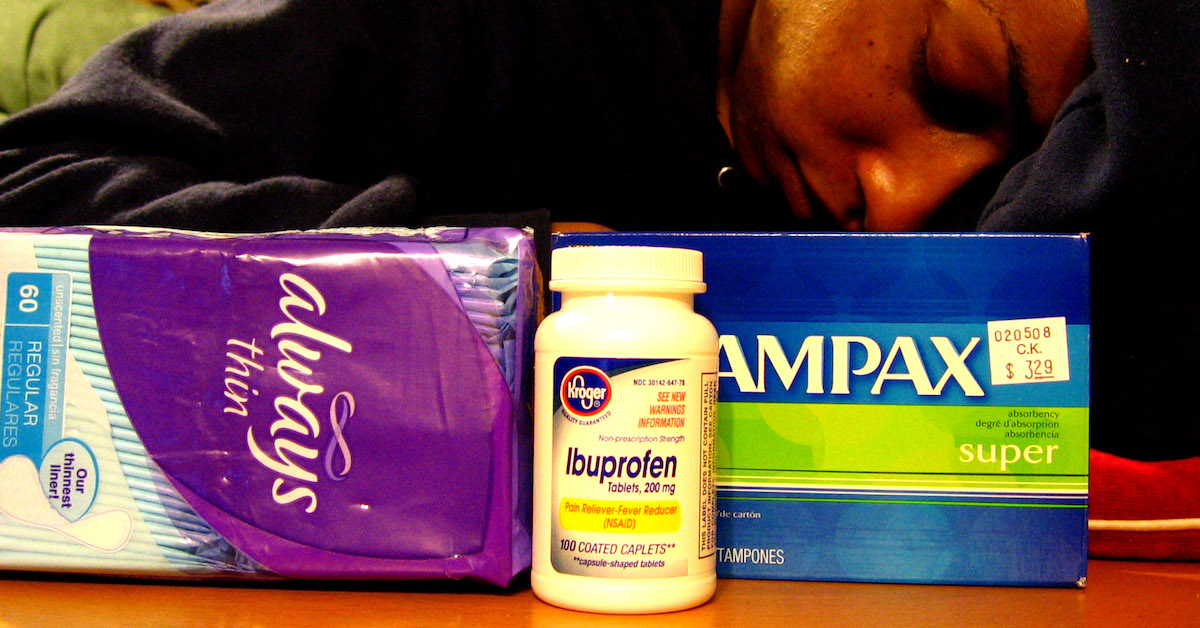Menorrhagia is the medical term for unusually heavy periods, which may also last for longer than usual. During these periods, a woman will lose more than 8o ml of menstrual fluids or her menstrual flow continues longer than seven days. While abnormally heavy menstrual periods are also frequently painful, this is not always the case.

Thanks to Bandita/Flickr Creative Commons.
Are you bleeding very heavily every month, or have you noticed that your menstrual flow is becoming heavier and heavier? Women with menorrhagia dread their periods every month and have trouble going about their daily activities while they are menstruating.
Menorrhagia: What and why?
Not every period is the same, and most women will notice that the heaviness of their menstrual flow fluctuates on a monthly bass. Women who usually have periods that last no longer than seven days that arent noticeably heavy may go through the odd super period, during which they seem to bleed abnormally much. For women with menorrhagia, every month is a heavy month.
Abnormally heavy periods are more likely to occur in adolescent or premenopausal women, overweight women, and those taking certain medications or suffering from blood-clotting disorders. Menorrhagia can also be caused by a hormonal imbalance or uterine fibroids, along with more serious causes like ovarian cysts and even ovarian or uterine cancer. This is enough of a reason to take your heavy periods extremely seriously, and not to delay visiting your doctor for too long.
How do I know if I need to see a doctor about my heavy periods?
Symptoms of menorrhagia can include:
- You bleed through your pad or tampon within the hour and you need to get up at night to change your tampon or pad
- Your periods last up to seven days or even longer
- You suffer from cramping during your period
- You experience bleeding in between periods
- You have short cycles
- You have irregular cycles
All of these symptoms warrant a trip to your OBGYN, under all circumstances. Not only can the heavy periods point to a serious underlying medical condition, menorrhagia itself is associated with an increased risk of iron-deficiency anemia and toxic shock syndrome.
Tip: If you have no idea how much blood/menstrual fluid you are losing during a period, a reusable menstrual cup such as the Moon Cup or the Diva Cup may help you out. They come with measures, after all. Reusable menstrual cups also reduce cramping in some women.
Heavy menstruation and fertility
Menorrhagia, or the underlying reason you have it, can impact your fertility and odds of conceiving a baby. If you are planning to try to conceive in the near future, that is yet another excellent reason to see a doctor about your heavy periods now.
Ovarian failure (AKA the menopause, which can also refer to a premature menopause), uterine abnormalities, endometriosis and other issues that also impact your fertility can be behind your heavy menstrual bleeding. These are things you are going to want to know about if you are trying for a baby or want to start soon.
Besides, the treatment you may ultimately receive for very heavy menstrual bleeding could have a huge impact on your family planning. Endometrial ablation, which makes pregnancy too dangerous to risk it, and hysterectomy are the most successful and long-term treatment options for menorrhagia. On the other hand, hormonal treatment and addressing the underlying cause — if discovered — may free you from your nasty periods forever.

